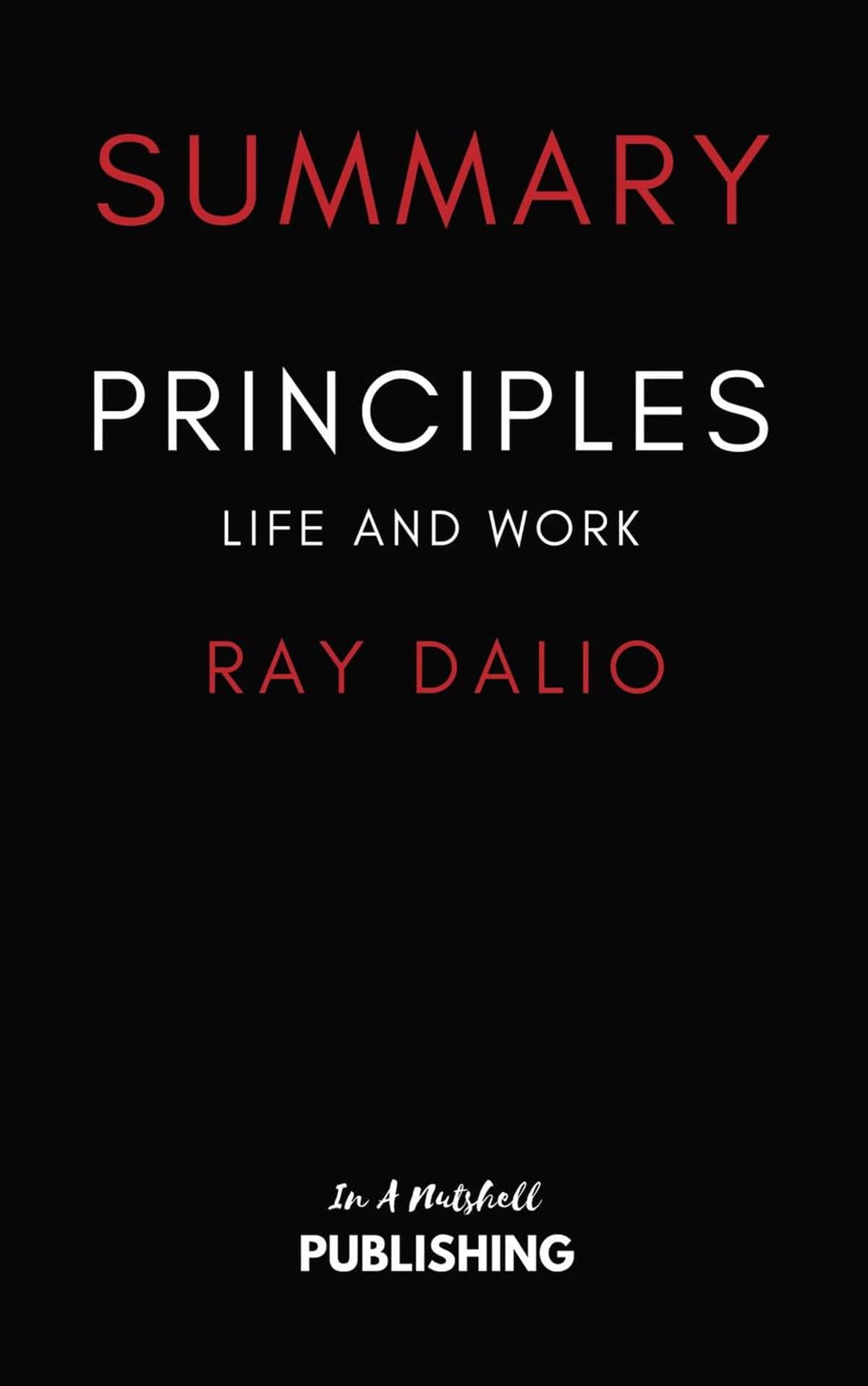Overview : Principles: Life and Work
-
Book Title: Principles: Life and Work
-
Author: Ray Dalio
-
Publication Date: May 1, 2011
-
Rating: 4.5
-
price: $18.98
-
Pages: 592
Author Information
Ray Dalio is the founder of Bridgewater Associates, one of the world’s largest and most successful hedge funds. A billionaire investor and philanthropist, Dalio is renowned for his innovative approaches to finance, leadership, and organizational management. His book Principles: Life and Work distills decades of experience into actionable insights for achieving success in life and business.
Introduction to Principles: Life and Work.
In the world of finance and investing, few names carry as much weight as Ray Dalio. His book, "Principles: Life and Work," offers readers a rare glimpse into the mind of one of the most successful hedge fund managers in history. This comprehensive guide not only delves into Dalio's investment strategies but also provides invaluable insights on personal growth and organizational management.
Principles: Life & Work by Ray Dalio Book Summary
Dalio's book is divided into three main sections: 1. "Where I'm Coming From" - A personal narrative that provides context for Dalio's principles. 2. "Life Principles" - Fundamental beliefs and attitudes for personal growth. 3. "Work Principles" - Insights on creating an effective organizational culture. Throughout these sections, Dalio emphasizes the importance of embracing reality, radical transparency, and data-driven decision-making. He introduces concepts like "idea meritocracy" and "pain + reflection = progress" that have been instrumental in his success.
Analysis of Themes
Investing and Market Analysis
While "Principles" isn't solely focused on investing, Dalio's background in finance permeates the book. He discusses the importance of understanding market trends and economic cycles, which is crucial for both personal finance and professional investing. Dalio's approach to risk management and portfolio diversification, known as the "All Weather" strategy, has influenced many in the financial sector.
Personal Finance
Dalio's life principles offer valuable lessons for personal finance management. He emphasizes the importance of saving, setting clear goals, and making decisions based on long-term outcomes rather than short-term gratification. These principles align well with sound financial planning practices recommended by experts.
Organizational Culture
The "Work Principles" section provides insights into creating a productive and innovative organizational culture. Dalio's emphasis on radical transparency and meritocracy challenges traditional corporate hierarchies and offers a fresh perspective on team management.
Writing Style
Dalio's writing style is direct and methodical. He presents his ideas in a structured manner, often using numbered lists and diagrams to illustrate complex concepts. While this approach enhances clarity, some readers might find it overly systematic.
Strengths and Weaknesses of Principles: Life and Work by Ray Dalio Book
Strengths:
- Comprehensive coverage of both personal and professional development
- Practical, actionable advice backed by real-world experience
- Unique insights into the workings of a successful hedge fund
Weaknesses:
- The sheer volume of information can be overwhelming
- Some principles may be challenging to implement in traditional corporate structures
- The focus on Bridgewater's specific practices may not resonate with all readers
Related Books to Principles: Life and Work by Ray Dalio
"Principles" shares similarities with other personal development books like Stephen Covey's "The 7 Habits of Highly Effective People." However, Dalio's focus on radical transparency and data-driven decision-making sets it apart. In the realm of finance books, it can be compared to Peter Lynch's "One Up On Wall Street" for its blend of personal anecdotes and investment wisdom.
Key Quotes
"Pain + Reflection = Progress" "An idea meritocracy is a decision-making system in which the best ideas win out." "I believe that the biggest problem that humanity faces is an ego sensitivity to finding out whether one is right or wrong and identifying what one's strengths and weaknesses are."
Highlights from Principles: Life and Work by Ray Dalio
Embrace Reality and Adapt: Face reality objectively, and be willing to adapt to reach your goals.
Principled Decision-Making: Develop principles as guiding values for making consistent, sound decisions.
Radical Transparency: Foster openness and honesty to encourage trust and clear communication.
Fail, Learn, and Improve: View failure as a learning tool, using mistakes to grow and refine your approach.
Idea Meritocracy: Create an environment where the best ideas win, regardless of hierarchy.
Meaningful Relationships and Work: Success comes from aligning with people who share values and goals, creating fulfilling relationships and work.
Conclusion
Ray Dalio's "Principles: Life and Work" is a thought-provoking read that offers valuable insights for anyone interested in personal growth, organizational management, or finance. While its approach may not resonate with everyone, the book provides a unique perspective shaped by decades of experience in the challenging world of hedge fund management. For those looking to improve their financial decision-making, understand market trends better, or simply gain insights from one of the most successful investors of our time, "Principles" is an essential read. It challenges readers to think critically about their beliefs and decision-making processes, potentially leading to significant personal and professional growth.
Ready to transform your approach to life, work, and investing?
Get your copy of "Principles: Life and Work" by Ray Dalio today
and start your journey towards a more successful and fulfilling life. In conclusion, this article has provided an overview of the topic at hand.





